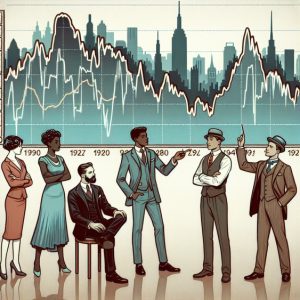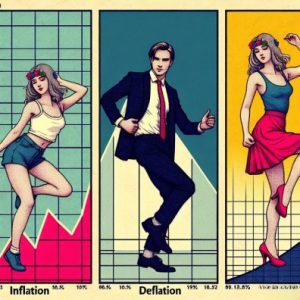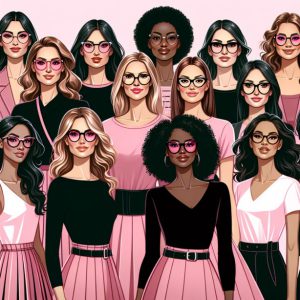
Introduction: Unveiling Inequality in the Justice System
June 24, 2023
In a world where wealth and privilege seem to hold great power, the phrase “the rich get richer, and the poor get prison” paints a grim picture of our society’s deep-rooted inequalities. This saying reflects the harsh reality that those with wealth and influence often enjoy advantages in the legal system while those less fortunate face the disproportionate weight of the law. In this article, we will explore the intricate relationship between socioeconomic status and the criminal justice system, shedding light on the disparities that persist and the consequences they have on society as a whole.
The Rich Get Richer, and the Poor Get Prison: Exploring the Imbalance
Understanding the Wealth Gap
The glaring disparity between the wealthy and the poor Economic differences are fueled by various factors such as inheritance, access to quality education, and social networks. This wealth gap sets the stage for many inequalities, including those within the criminal justice system.
A Fascinating read: Stock Investing For Dummies: Fearless Focus on the Trend
Wealth and Legal Representation
When individuals from different socioeconomic backgrounds find themselves entangled in legal matters, the availability of resources often determines the outcome of their cases. Wealthy defendants can afford top-tier legal representation, ensuring their rights are vigorously defended. In contrast, the poor are frequently assigned overburdened public defenders who may lack the time and resources to mount an effective defence. This discrepancy in legal representation exacerbates the unequal treatment of individuals within the justice system.
The Bail System: Presumption of Innocence or Monetary Advantage?
One area where socioeconomic disparities become particularly evident is the bail system. When an individual is arrested, they may be required to post bail to secure their release pending trial. However, one’s financial means heavily influence the ability to pay bail. Consequently, the poor often find themselves trapped behind bars, while the wealthy can secure their freedom regardless of the severity of their alleged crimes. This fundamental flaw perpetuates the justice system’s inequality and prejudice cycle.
Sentencing Disparities: A Glimpse into Injustice
Studies have consistently shown that disadvantaged individuals face harsher sentences than their affluent counterparts. Race, social status, and access to legal resources contribute to this disparity. The rich often benefit from reduced sentences, alternative sentencing options, or even avoiding conviction altogether. On the other hand, the poor are more likely to receive longer prison terms and limited opportunities for rehabilitation, perpetuating the cycle of poverty and criminality.
Conclusion
“The rich get richer, and the poor get prison” is not merely a saying; it is a distressing reality that unveils the inherent inequalities within our justice system. The disparities in legal representation, the bail system, and sentencing continue to perpetuate the cycle of poverty, reinforcing the social divide. To create a fairer society, it is crucial that we recognize these injustices and work collectively to address them. Only through systemic change and a commitment to equality can we hope to achieve a justice system that truly serves everyone.
FAQs (Frequently Asked Questions)
Q: Is the phrase “the rich get richer, and the poor get prison” just a saying, or is there empirical evidence to support it?
A: While the phrase itself is a concise expression of a larger issue, empirical evidence strongly suggests that socioeconomic status plays a significant role in the criminal justice system. Numerous studies have demonstrated the existence of disparities in legal representation, bail outcomes, and sentencing, all of which contribute to the perpetuation of inequality.
Q: Are there any initiatives aimed at addressing these inequalities?
A: Various organizations and advocates are actively working to address the inequalities within the justice system. Efforts range from criminal justice reform movements pushing for policy changes to initiatives focused on improving access to legal resources for disadvantaged individuals. However, much work must be done to create a truly equitable system.
Q: Does the imbalance in the justice system only affect individuals during the trial phase?
A: No, the consequences of inequality extend beyond the trial phase. Individuals who face harsh sentences are more likely to struggle with reintegration into society, leading to increased recidivism rates. Moreover, the impact is felt by entire communities as the cycle of poverty and criminality perpetuates.
Q: Is it possible to eliminate these disparities?
A: Achieving complete eradication of disparities within the justice system is a complex task that requires comprehensive reform. However, we can strive towards a more just and equitable society through systemic changes, increased access to legal resources, and addressing biases at all levels.
Q: Are there any success stories where individuals from disadvantaged backgrounds received fair treatment?
A: While instances of fair treatment for individuals from disadvantaged backgrounds do exist, they are, unfortunately, the exception rather than the norm. Highlighting these success stories can serve as a testament to the need for change and inspire efforts to create a more equitable justice system.
Q: What can individuals do to contribute to the fight against inequality within the justice system?
A: Individuals can contribute to the fight against inequality by supporting organizations that advocate for criminal justice reform, volunteering to provide legal aid, or staying informed about the issues. We can make a difference through collective action and a commitment to change.
From Our Archive: A Diverse Range of Articles to Explore

Stock Market Fear Meter: All Bark, No Bite

Stock Market Forecast for Next Week: Ride the Thrilling Trend!

Rags to Riches Stories: The Power of Perseverance and Discipline

Dow Jones Average Chart: Trading for Success

Financial Disaster Recovery Plan: Buying the Crash, Selling the Joy

Inflation vs Deflation vs Disinflation: Navigating and Winning

Unmasking Deceit: Examples of Yellow Journalism

Crude Oil Crash: Unveiling Crowd Stupidity and Opportunity

Mass Psychology Overview: Unveiling its Enigmatic Dynamics

What is Mass Psychology: Mastering the Investment Game

Strategic vs Tactical Asset Allocation: The Dominating Difference

When Inflation is, the Fed Aims to Slow the Economy

Latest Stock Market News: Making Money With Mass Psychology

People Who Went From Rags to Riches and How They Did It

Tactical Asset Allocation: Master Portfolio Strategy


